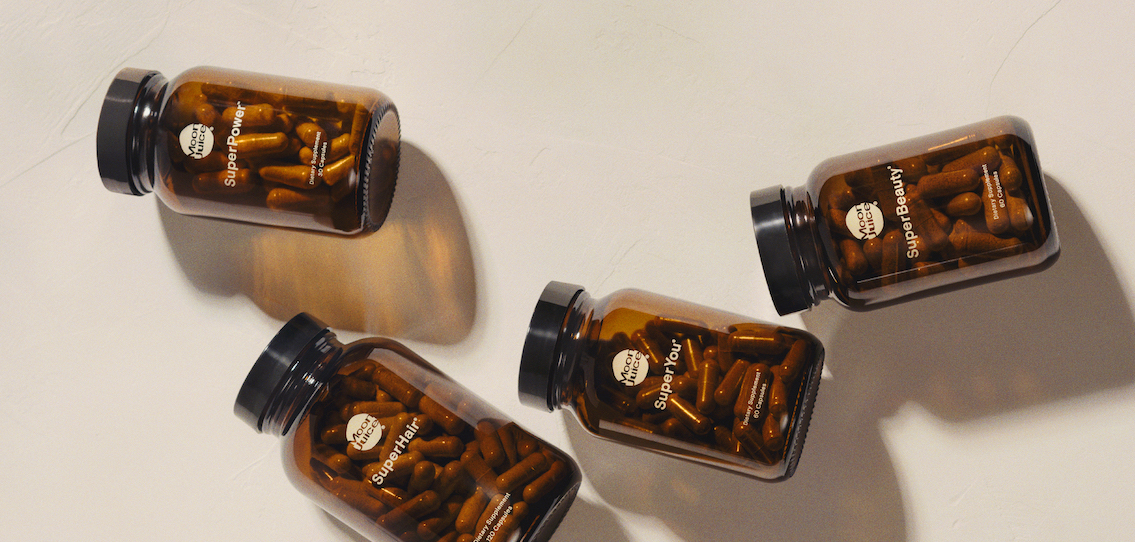On Monday, Moon Juice announced it raised an approximately $7 million Series C round, led by True Beauty Ventures.
Moon Juice, founded in 2011, has now raised at least $10 million. As a later-stage round, the $7 million raised is smaller than the typical $30 million or more often seen in today’s investing climate. Elizabeth Ashmun, president of Moon Juice, said this was deliberate as the company has been slow-and-steady in its growth. The company will direct the investment toward marketing, hiring and e-commerce to retain its leading position in the ingestible wellness category. Moon Juice reported $20 million in annual sales in 2018 and has been profitable for “the past few years,” said Ashmun.
“We’ve proven [our wellness] concept. Now we’re going to have more runway and investment in the company that are going to allow us to accelerate the great work that we’ve already been doing,” said Ashmun. “A lot of companies at this stage are not profitable. We did not have to bring in an investor in order to sustain the business. But this space is emerging and growing so quickly that, to maintain our leadership position, we needed to put be able to invest more.”
Moon Juice has been busy, launching its latest product called Ting, a B12 vitamin supplement, in Sept. 2021. Prior to this, it expanded to Sephora Canada, landing on its website in April 2021 and its nationwide locations in July. It also entered the Middle East and expanded its retail door count in Australia and New Zealand through its partnership with Mecca. Amanda Chantal-Bacon, founder of Moon Juice, released her second book in Oct. 2021, called “The Moon Juice Manual.” It serves as half-cookbook and half-stress-management guide, with both involving the use of adaptogens. Ashmun noted that Chantal-Bacon is still the majority owner of the brand. Chantal-Bacon said the Series C was more than just about money and that she was looking for investors who could “roll up their sleeves and get to work with our team.”
“[The Moon Juice team] understands the importance of growth, but not growth at all costs. They’re focused on profitability. They’re very focused on keeping their distribution narrow and productive, and making sure that they don’t compromise the brand’s positioning,” said Cristina Nuñez, founder and general partner at True Beauty Ventures. “This is a category that’s very easy to over-proliferate and take many channels of distribution.”
Moon Juice, and supplements as a whole, have faced their share of criticism. A 2017 article from The New York Times Magazine pointed out that the same ingredients found in Moon Juice products could be found on the website Infowars, operated by far-right conspiracy theorist and radio host Alex Jones. Supplements as a whole have faced heat for offering users nothing but expensive urine and, often, not containing the ingredients they say they do. Yet, the space is prime for large exits and big returns. Unilever acquired Olly Nutrition in 2019 for an undisclosed price, while Nestlé bought The Bountiful Company for $5.75 billion in 2021.
Ashmun said that Moon Juice will focus heavily on the marketing of and communication around its formulations. Moon Juice supplements range in the $15-$60 range and are regarded as a prestige brand. Ingredients like vitamin D are sourced from button mushrooms on a Pennsylvania Amish farm, for example, compared to the typical sourcing from sheep’s lanolin, according to a Wall Street Journal article. “Our plants are imported whole and custom-extracted at a wind-powered facility in the Pacific Northwest using local spring water,” the Moon Juice website states.
“Moon Juice has experienced steady growth every year, in spite of being undercapitalized relative to its competition,” said Rich Gersten, founder and managing partner at True Beauty Ventures. “We believe that, with incremental capital, a focus on more marketing and continued buildout of the team, an already good growth trend can be accelerated.”




